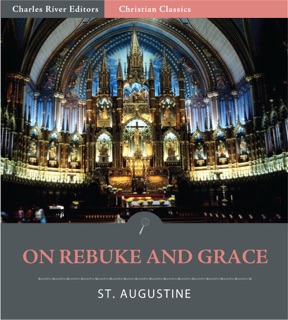Augustine of Hippo (November 13, 354 – August 28, 430), also known as St. Augustine, was Bishop of Hippo Regius. He was a Latin-speaking philosopher and theologian who lived in the Roman Africa Province. His writings were very influential in the development of Western Christianity.
According to his contemporary, Jerome, Augustine "established anew the ancient Faith" In his early years he was heavily influenced by Manichaeism and afterward by the Neo-Platonism of Plotinus. After his conversion to Christianity and baptism (AD 387), Augustine developed his own approach to philosophy and theology, accommodating a variety of methods and different perspectives. He believed that the grace of Christ was indispensable to human freedom, and he framed the concepts of original sin and just war.
When the Western Roman Empire was starting to disintegrate, Augustine developed the concept of the Church as a spiritual City of God (in a book of the same name), distinct from the material Earthly City. His thought profoundly influenced the medieval worldview. Augustine's City of God was closely identified with the church, the community that worshipped God.
In the Catholic Church and the Anglican Communion, he is a saint and pre-eminent Doctor of the Church, and the patron of the Augustinian religious order; his memorial is celebrated 28 August, the day of his death. He is the patron saint of brewers, printers, theologians, the alleviation of sore eyes, and a number of cities and dioceses. Many Protestants, especially Calvinists, consider him to be one of the theological fathers of Reformation due to his teaching on salvation and divine grace. In the Eastern Orthodox Church he is blessed, and his feast day is celebrated on 15 June. Among the Orthodox, he is called "Blessed Augustine", or "St. Augustine the Blessed".
On Rebuke and Grace sets forth what is the Catholic faith concerning law, concerning free will, and concerning grace. He teaches that the grace of God by Jesus Christ is that by which alone men are delivered from evil, and without which they do absolutely no good; and this not only by the fact that it points out what is to be done, but that it also supplies the means of doing it with love, since God bestows on men the inspiration of a good will and deed. He teaches that the rebuke of evil men who have not received this grace is neither unjust—since they are evil by their own will—nor useless, although it must be confessed that it is only by God's agency that it can avail.
This edition of St. Augustine’s treatise is specially formatted with a Table of Contents.



















































